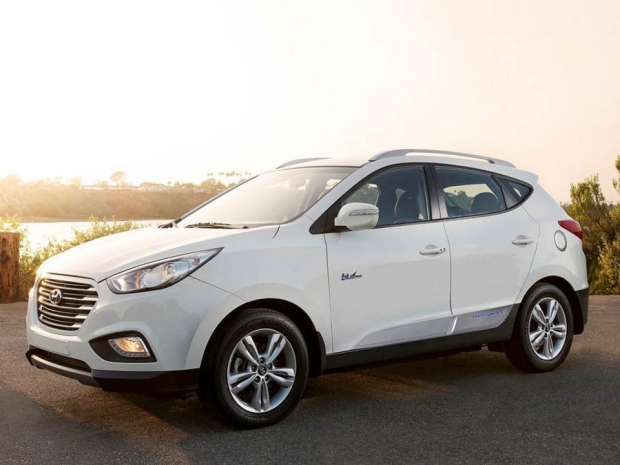The South Korean automaker’s new hydrogen fuel-cell vehicle is expected to feature a 348-mile range (561km), falling just below the recently released Honda Clarity’s 366-mile range and above the Toyota Mirai’s 312-mile range. The vehicle will also be offered at a lower sticker price of about $50,280, compared to the Clarity at $60,000 and the Mirai at $57,500, respectively.
The company’s first hydrogen fuel cell vehicle, the ix35 or “Tucson” in the US, was unveiled in 2009 at the Frankfurt Motor Show and has been released in several model-year variants ever since. In December 2015, the company’s fuel cell research boss Sae-Hoon Kim said it would announce a second-generation fuel-cell vehicle with a 400-mile range by 2020.
Now, the release date has been pushed forward to January 2018, with engineers claiming that the final design will have 30 percent more mileage than the first-generation model. While driving range has been significantly improved, automobile experts note that the reduction in price is a significant development that could change the segment of fuel-cell based vehicles. The first-generation Hyundai Tucson Fuel Cell in 2014 was offered on a 36-month lease at $499 per month with a $3,000 down payment, while the newer model is expected to be offered with government subsidies in markets with alternative fuel incentives.
Hyundai originally developed a test FCEV using its second-generation fuel cell as early as 2005. The vehicle used an 80kW electric motor and produced a range of 186 miles (300km), so it is quite an impressive leap to a 348-mile range, though the 93mph (150kmh) top speed has not changed.
The company also plans to unveil a commercial hydrogen fuel-cell powered bus sometime in 2017 to compete with Japanese automaker Toyota’s own 77-seat fuel cell bus releasing early this year.




